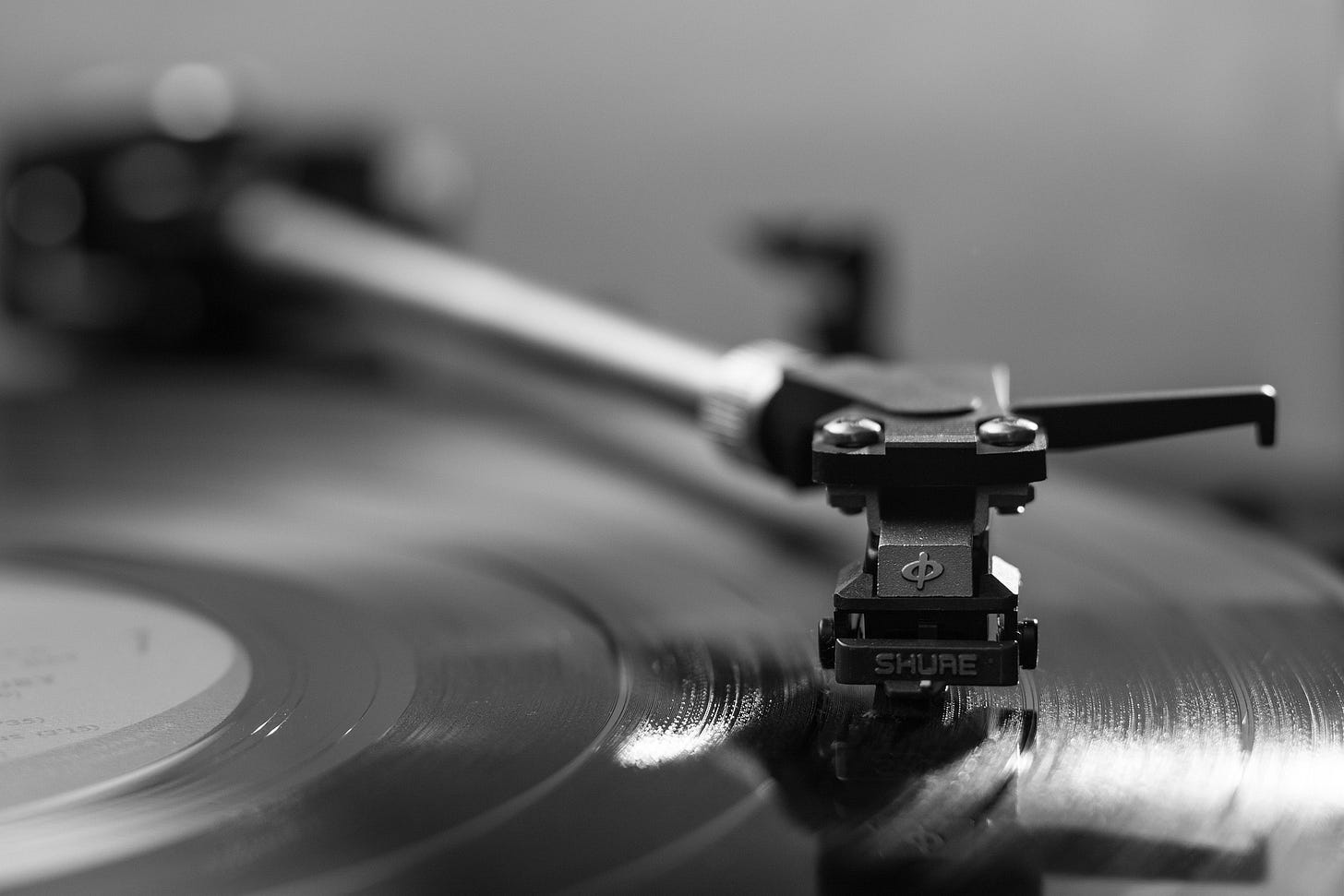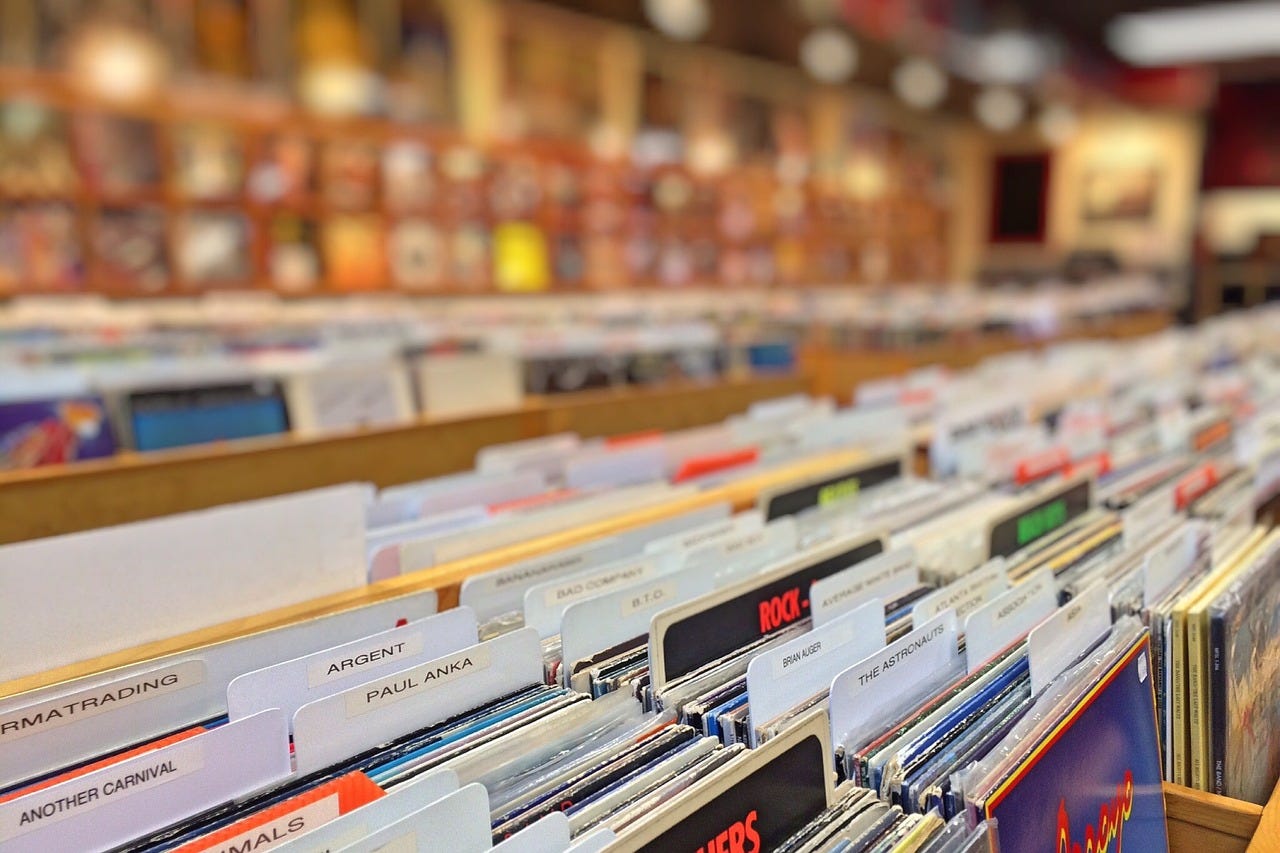Original versus reissue: the great debate
Are original pressings always better? What's the difference between a repress and a reissue? Today we start untangling some of vinyl's best kept secrets.
This may come as a surprise to some of you, but not all vinyl records sound the same. Two vinyl records may look, for all intents and purposes, identical, but their respective sound quality and potential resale value may differ significantly.
Why is that? Things like sound quality and resale value are determined primarily by the specific “edition” a record belongs to. There can be over a hundred different editions of the same record, especially if the album in question is one of the best-selling records of all time or considered emblematic for artistic and/or commercial reasons.
One of the easiest ways to tell an experienced collector from a casual vinyl listener is that the latter may simply say they own a certain album on vinyl, whereas the former is more likely to immediately specify whether they own an original or a reissue, the year of release and the country of origin.
Does this really matter, I hear you ask, or is it just pure snobbery? Well, the short answer is yes, it matters… and yes, some people can be snob about it.
Repress versus reissue
These terms are sometimes used interchangeably but there are technical differences between them.
With every album release, arrangements will have been made to ensure that the record can reach its target audience as easily and cost-effectively as possible. This target audience may involve only a handful of countries or the entire world, depending on the artist in question, the specific release, and the available budget.
There’s always a primary market which is typically the artist’s home country or where the band is headquartered, so to speak, although there are some exceptions. It’s basically the country where the artist is expected to sell more.
A record may be released in the artist’s primary market first and then in different markets, or simultaneously in different markets, but then again, there are exceptions to this (sometimes there are strategic or practical reasons why an album gets released in a smaller market first before hitting the stores in the artist’s primary market).
When demand outstrips supply in a given market, the record needs to be made available again. Some records never stop selling, and therefore new editions of the same album keep appearing to satisfy this new or persistent demand.
If a record is pressed in exactly the same way as the original batch, i.e. from the same source, and in the same country, it’s considered a repress.
A reissue, in contrast, may not necessarily come from the same source or be produced in the same country as the very first pressing.
Note that a remaster is a completely different term which basically involves a sound engineer reprocessing the audio to enhance playback. A reissue may or may not involve a remaster.
Identifying your version
How can you tell which specific edition or “issue” you have? As I previously explained, the Discogs database allows you to search for all the different issues and reissues of the same album.
You can filter by year of release, country of origin, and even barcodes and other identifiers. Some records will only have been issued a few times on vinyl, so narrowing them down should be an easy task. Some albums, in contrast, have been released hundreds of times on vinyl, even within the same country, so identifying which specific edition or issue you have in front of you can be a painstaking process.
While I know this may sound tedious, I wholeheartedly recommend setting some time aside to identify which specific release of each album you own, as well as keeping your collection notes up to date.
If the prospect of going through each of your records all at once sounds daunting, you can do it progressively. For example, every time you take a record out to play it, you can quickly log into your Discogs account and update your collection with the relevant details. Once your collection is up to date, you will only need to update it as and when you add a new record to your collection.
Databases are as good as we make them. The more details you enter and the more organised you are, the more reliable the information will be.
Are original pressings better?
You may have heard or read that some people claim original editions are always better. To what an extent is this true?
As you can probably guess, it depends on what exactly you are after. If we are talking about resale value, it is fair to say that an original pressing will, in general, tend to sell for more, because it is considered a collector’s item in itself. But this is not always the case, and there are some reissues that will be worth much more than the original pressing, especially if quite rare and in high demand.
When it comes to sound quality, things get even trickier. Listening impressions are subjective by their very nature, and ultimately, a lot will come down to your system and the condition of the record. A record’s very first pressing is seen by some as being “closer to the master” and therefore superior, but this is not always true. In fact, a record’s first batch may sometimes contain defects that get corrected later.
What’s more, some reissues may have been handled by a different pressing plant with more experience or prestige than the one who worked on the first pressing.
As you can see, a lot depends on the record in question and the circumstances surrounding its release.
How to choose
There are certain factors that can give you a more or less accurate idea of a record’s sound quality and potential resale value even before you spin it. In fact, I dare say, even before you take it out of its sleeve.
In the next instalments of this series I will be discussing some of the techniques I use so you can also learn how best to “judge” a record’s sound quality and potential resale value in seconds. Trust me, this is tremendously helpful if you’re pressed for time at a record store and you need to make up your mind quickly.
If there are specific details about the whole “original versus reissue” saga you would like me to cover, please do not hesitate to let me know in the comments below and I’ll make sure I include them as we go along.
That’s all for now. Thanks a lot for reading or listening. Stay tuned for more and, as always, happy spinning!









Thank you for all this info. I'm doing some collecting and using some of the resources you list. I'm interested in your next installment as i go down the road of collecting original pressings of country vinyl!
Wow, this was fantastic! And answered the question on remastering that I left on another of your posts.